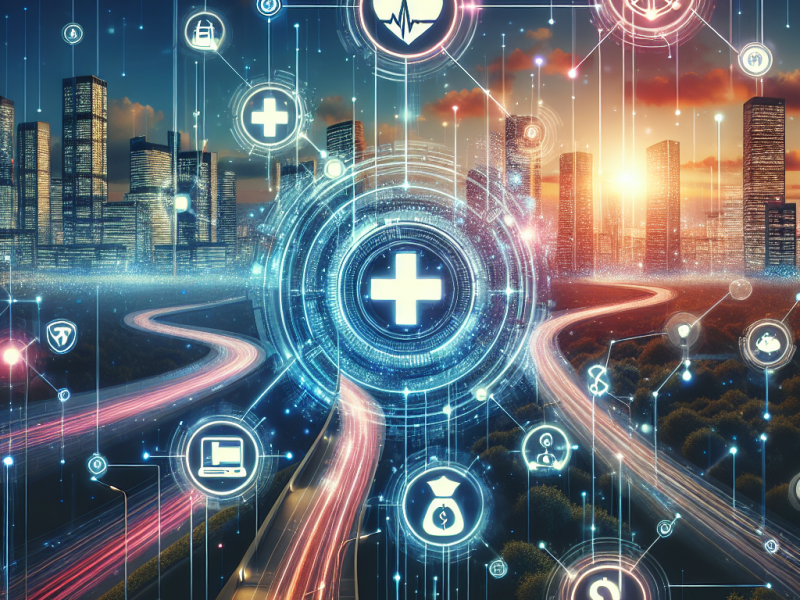Decentralized Artificial Intelligence (AI) refers to the development and deployment of AI systems where independent agents operate autonomously to perform complex tasks, often in collaboration with other agents.
Decentralized AI represents a paradigm shift in the way artificial intelligence systems are designed and implemented. Unlike centralized AI, where a single system or entity controls the entire operation, decentralized AI involves multiple autonomous agents that work independently yet collaboratively to achieve a common goal. These agents can operate in various environments, communicate with each other, and make decisions based on local data and interactions.
Decentralized AI systems can be deployed in various configurations, from small-scale networks of a few agents to large-scale systems involving thousands of agents. This flexibility allows for tailored solutions to specific problems, enhancing the overall effectiveness and efficiency of the AI system.
Key Components
- Autonomous Agents: These are the building blocks of decentralized AI. Each agent operates independently, making decisions based on its local environment and data. These agents can be designed for specific tasks, such as data collection, analysis, or decision-making.
- Communication Protocols: Effective communication between agents is crucial for decentralized AI systems. Protocols ensure that agents can share information and coordinate actions. This communication can occur through various means, including direct messaging, broadcasting, or using intermediary nodes.
- Consensus Mechanisms: These mechanisms help agents agree on certain decisions or actions, ensuring the system operates cohesively. Consensus mechanisms can include voting systems, leader election algorithms, or distributed ledger technologies like blockchain.
- Scalability Solutions: Decentralized AI systems need to be scalable, allowing for the addition of new agents without disrupting the overall operation. Scalability solutions involve designing systems that can handle increased load and complexity as more agents are added.
Advantages and Disadvantages
Advantages:
- Scalability: Decentralized AI systems can easily scale by adding more agents. This allows for handling increased data and task complexity without overloading a single system.
- Robustness: The failure of a single agent does not compromise the entire system, making it more resilient. This robustness is particularly valuable in critical applications where system failure can have severe consequences.
- Flexibility: Agents can be designed for specific tasks, allowing for a more flexible system. This specialization enables decentralized AI systems to adapt to various environments and requirements.
Disadvantages:
- Complexity: Designing and managing decentralized AI systems can be complex. The interactions between agents, communication protocols, and consensus mechanisms add layers of complexity that require careful planning and implementation.
- Coordination Challenges: Ensuring effective communication and coordination among agents can be difficult. Miscommunication or delays can lead to suboptimal performance or errors in the system.
- Security Risks: Decentralized systems may be more vulnerable to certain types of attacks. Ensuring the security of communication channels, protecting against malicious agents, and maintaining data integrity are critical challenges.
Applications in Various Fields
Decentralized AI has a wide range of applications across different sectors:
- Healthcare: Autonomous agents can monitor patient health, manage medical data, and even assist in diagnostics. For example, decentralized AI systems can enable remote patient monitoring, personalized treatment plans, and early detection of diseases.
- Finance: Decentralized AI can optimize trading strategies, detect fraudulent activities, and manage financial portfolios. In finance, these systems can provide real-time market analysis, risk assessment, and automated trading.
- Supply Chain Management: Agents can track goods, optimize routes, and manage inventory in real-time. Decentralized AI can enhance supply chain transparency, reduce delays, and improve overall efficiency.
- Smart Cities: Decentralized AI can manage traffic, optimize energy usage, and enhance public safety. In smart cities, these systems can coordinate traffic lights, monitor environmental conditions, and respond to emergencies.
Future Trends and Predictions
The future of decentralized AI looks promising, with several trends expected to shape its development:
- Increased Collaboration: More collaborative efforts between academia, industry, and governments to advance decentralized AI research. This collaboration will drive innovation, develop new technologies, and address common challenges.
- Integration with Blockchain: Combining decentralized AI with blockchain technology to enhance security and transparency. Blockchain can provide a secure and immutable ledger for recording interactions, transactions, and decisions made by AI agents.
- Enhanced Learning Algorithms: Development of more sophisticated learning algorithms to improve the efficiency and effectiveness of autonomous agents. Advances in machine learning, reinforcement learning, and neural networks will enable decentralized AI systems to learn and adapt more effectively.
- Ethical Considerations: Growing focus on the ethical implications of decentralized AI, including privacy, security, and fairness. Ensuring that decentralized AI systems operate ethically and transparently will be a key area of research and development.
Ethical Considerations
- Privacy: Ensuring that decentralized AI systems protect the privacy of individuals and data is crucial. Implementing privacy-preserving techniques, such as differential privacy and secure multiparty computation, will help address these concerns.
- Security: Developing robust security measures to protect decentralized AI systems from attacks and malicious agents is essential. This includes securing communication channels, verifying the integrity of data, and implementing intrusion detection systems.
- Fairness: Ensuring that decentralized AI systems operate fairly and do not discriminate against individuals or groups is a critical ethical consideration. Developing algorithms that promote fairness and mitigate bias will be an important area of research.
Decentralized AI offers a new approach to building intelligent systems that are scalable, robust, and flexible. While there are challenges to be addressed, the potential benefits and wide range of applications make it an exciting area of research and development. As technology continues to evolve, decentralized AI is likely to play an increasingly important role in various sectors, driving innovation and improving efficiency. Ready to explore decentralized AI solutions? Get in touch with us now.

